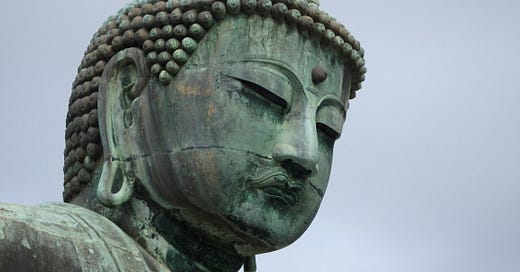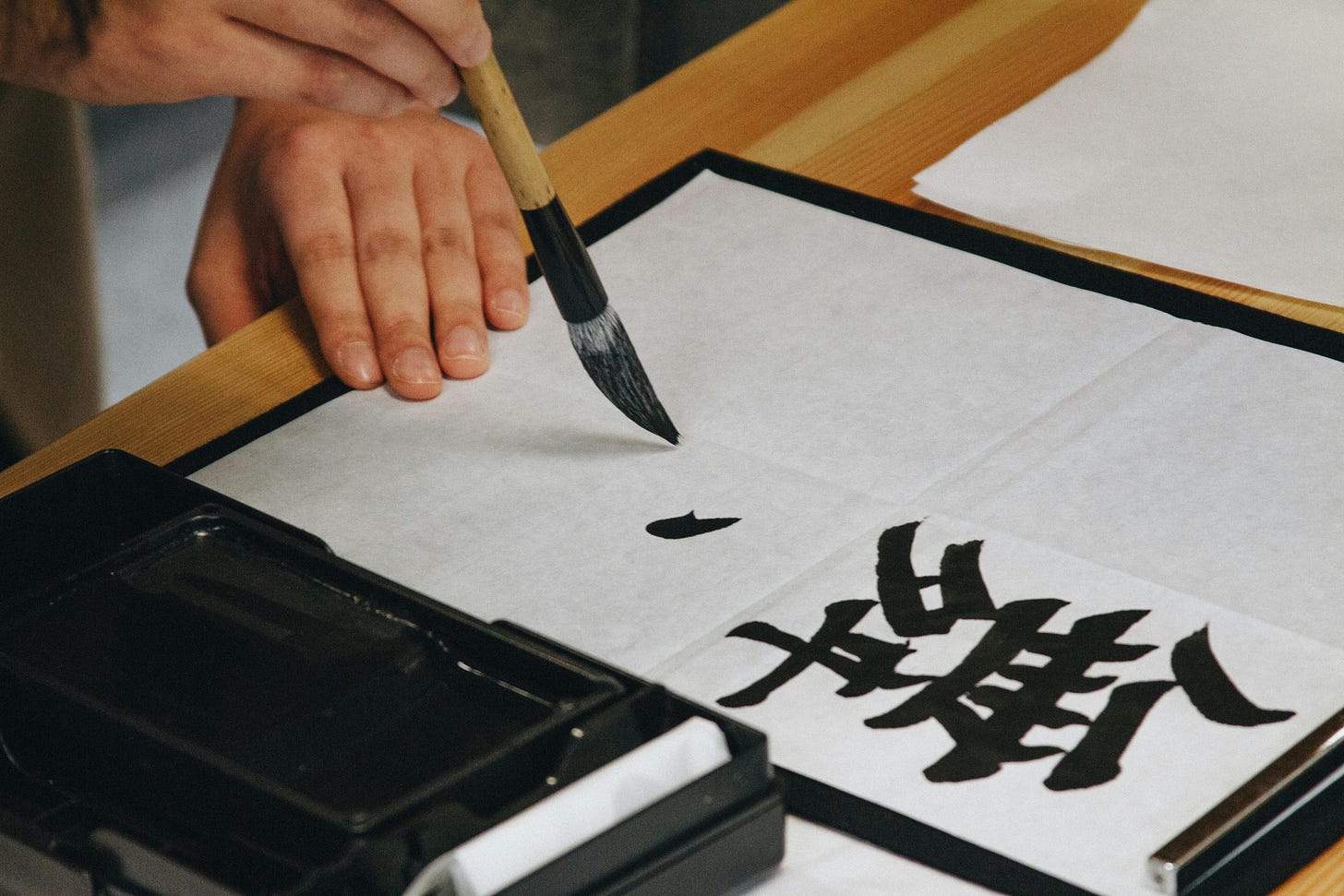The art of embracing imperfection: Learning from Wabi-Sabi
The essentials for life and career growth
Welcome to One Thing Smarter. We are back after a little hiatus. Each week, we share a quick digest of actionable ideas, lessons, principles and advice from great minds and top performers to make you more successful and satisfied — and build a life, career or company you love. Today we talk about wabi-sabi.
Wabi-sabi represents a comprehensive Japanese worldview centered around the acceptance of transience and imperfection. Drawn from Buddhism, this concept is derived from the words ‘wabi,’ signifying rustic simplicity and ‘sabi,’ suggesting the beauty of age and wear. In essence, it teaches us about finding beauty in imperfection and profundity in nature.
Photo by Lindie Botes ✦ on Unsplash
Boosting Productivity through Understanding Imperfections
Wabi-sabi can contribute significantly to boosting productivity. Beyond the boundaries of art, embracing imperfection in one's work life can foster an atmosphere of openness and provide psychological safety that promotes creativity and innovation. Recognizing imperfections, and accepting them, promotes resilience, which propels an effective problem-solving attitude.
The principles of wabi-sabi can lead to a fulfilling life. Embracing imperfection in every aspect of our lives, including work, relationships, and self-perception, we come to appreciate life's transient beauty. By practicing self-forgiveness while acknowledging personal flaws, we cultivate self-love, a vital aspect towards living a fulfilling life — something that continues to inspire Japanese art, which in turn provides a clear and simple path to peace and self-healing.
Photo by Niketh Vellanki on Unsplash — Living a Fulfilling Life Inspired by Japanese Art
Enhancing Work Efficiency through the Principles of Wabi-Sabi
Embracing imperfection can lead to improved work efficiency. Wabi-sabi encourages us to recognize, not to eliminate, the imperfections in our systems. This means addressing problems directly and finding solutions instead of striving for an unattainable ideal. Such an approach decreases stress and increases satisfaction in work while leading to greater efficiency and productivity.
Additionally, the application of wabi-sabi in the workplace can transform company culture, fostering an environment focused on continuous improvement rather than error-less output. As teams learn to perceive errors as opportunities for growth, collaboration becomes more effective, fostering a healthy work-life balance.
Why I embrace Imperfection
Personally for me, embracing imperfection has meant accepting change and variability; it has allowed me to welcome innovation and creativity, even through chaos and catharsis. Accepting the hard things in life as a constant, and making peace with the perpetual shortage of time in our day-to-day living, wabi-sabi has brought me enhanced resilience and adaptability, intellectual flexibility, and the capacity to problem-solve effectively.
By embracing wabi-sabi, I feel like I can appreciate the beauty in the mundane and develop mindfulness, finding joy in every moment. In the face of adversity, taking a deep breath and putting on the proverbial glasses of wabi-sabi to my point of view, I feel like I can be more resilient, chuckle a little at the complex or difficult nature of problem that may have presented, and know that approaching the obstacles in life is same as approaching opportunities for growth.
Photo by Dragos Gontariu on Unsplash
Role of Embraced Imperfections in Workplace Productivity
In a work environment where imperfection is embraced, employees are more likely to take calculated risks and innovate, knowing that failure is not the end but a beginning. This leads to increased productivity as more ideas are explored.
Wabi-sabi, with its emphasis on embracing imperfection, can be the secret to effective productivity. It promotes a balance between accepting our limits and striving for improvement, creating an efficient and fulfilling work environment.
In all, adapting principles from Japanese art such as wabi-sabi can have profound implications in the modern workplace. Its empowering message restores balance while fostering creativity and resilience, ultimately boosting productivity.
What do you think of wabi-sabi?
Hope you enjoyed our quick digest of the best ideas for smarter living this week. P.S. Can I ask you a favor? If you’re enjoying this newsletter, can you forward it to a friend? Thank you!
Until next week,
Be Epic!
Somair






